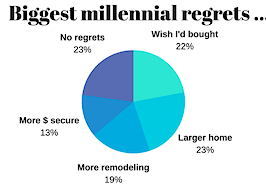- Publicly funded companies and venture capital firms have made progress in hiring more diverse boards -- but startups are behind.
- A Redfin partnership with several venture capital firms will encourage startups to make at least one board seat available to a diverse candidate within two years of receiving funding.
If you’ve been paying any attention to the problems plaguing Uber, then you already know that the technology industry has a diversity problem — and that board members contribute to attitudes that permeate every company.
In an effort to build the most diverse boards possible, Redfin is partnering with several venture-capital (VC) firms (DFJ, Greylock Partners, Madrona Venture Group, Pioneer Square Labs and Boardspan) that will encourage the startups they fund to “make at least one independent board seat available to diverse candidates within two years of that funding,” Redfin’s Bridget Frey (CTO) and Glenn Kelman (CEO) wrote in a blog post.
“Other venture firms who wish to join our campaign can sign on via Twitter using the hashtag #DiverseFromTheStart,” they added.
What’s the problem?
In November of last year, Frey and Kellman looked at the number of women appointed to the boards of publicly funded companies between 2013 and 2016, and they reported that the number of women appointed to those boards had tripled in three years. So publicly funded companies seem to be doing better at diversity efforts than they were in 2013.
They updated that research with a dive into VC firm boards in the recent blog post, noting that the top 25 VC firms (based on the number of deals) have increased the number of women on their boards from about 1 in 3 in 2013 to almost 1 in 2 by 2016-2017.

“But there has been absolutely no change in the diversity of startup boards over the last year,” Frey and Kellman wrote. “And the problem, as we now see with large-scale companies attempting to become more inclusive toward women and people of color, is that a company’s culture is often formed by its first 30 people.”
Frey and Kellman acknowledge that many entrepreneurs might not be focused on recruiting a more diverse board, “but our experience building Redfin’s board, first with Emily Melton and later with Selina Tobaccowala and Julie Bornstein, is that it puts the company on a different course, able to compete for a much broader range of talent over years and even decades. As Redfin’s CEO, Glenn wishes we had recruited more women to our board sooner and, as we add board members, he is committed to bringing on more people of color; working with some of our investors, Bridget has developed a framework to encourage other startups to do just that,” they wrote.
“The problem is that startup boards consist almost entirely of the investors who are backing the company. And these investors are almost entirely male. According to Fortune, 94 percent of decision-makers at U.S. venture capital firms are men. We don’t have statistics on the racial composition of these decision-makers, but in our personal experience most are white.”
Why is this the solution?
“Any competitive process for hiring a board member may end with a male or a white board member,” Frey and Kellman allowed, “but we think the #DiverseFromTheStart effort will still make startup cultures significantly more diverse:”
- By “opening early-stage boards to an independent member,” not VCs alone
- By “being aggressive” about soliciting diverse candidates
- By “explicitly recognizing as one criterion for selecting a candidate the value that a diverse board member would bring to the company”
Frey and Kellman add that independent board members — unlike investors — “will likely require some form of compensation.
“One way that we suggest thinking about compensation is that startups offer the same number of options they would give to an engineering director, and also agree to cover expenses for traveling to board meetings,” they wrote. “Of course, every startup is different and should compensate based on what makes the most sense for their business.
“We believe this change will lead to more diverse startup boards. And we believe that a more diverse startup culture will renew the technology industry’s leadership in the business world at large,” they concluded.












